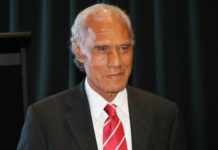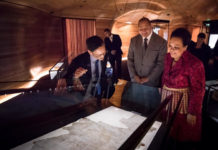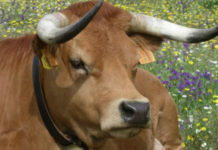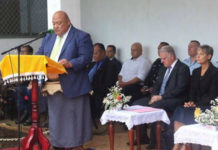The government of Tonga plans to build a warehouse and accommodation on its land in Samoa.
Labour and Commerce CEO Edgar Cocker said plans also included building a selling outlet and a mini conference centre.
Cocker is in Apia to look at the plan and to talk to the Samoan authorities.
He said the Tongan government planned to export watermelons to Apia.
Cocker said they would hold talks with Samoan authorities about removing 20 percent import duty they charged on imported produce.
“We discussed this while were in Nauru during the Pacific Island Leaders forum and I expect further discussion on that while I am in the country,” Cocker said.
He said watermelons made good money in Apia.
He said the Tongan government also planned to export its watermelons to Pagopago.
Cocker said this was part of the government’s mission to boost Tonga’s economy.
This is not the first time the Tongan government has tried to export watermelons to Samoa.
Shipments started in late 2010, and demand continues to grow with a forecast market value of $2.5 million Pa’anga or about A$1.35 million per year, according to an Australian report.
An attempt in March 2014 was made to boost the Samoa-Tonga trade after the government purchased a controversial vessel from the Ramanlals which it renamed as MV Niuvakai but the project did not work.
As Kaniva News reported last year, there were not enough goods to export and the MV Niuvakai appears to have become a financial liability.
Local businesses complaints
Cocker said he found it very difficult to do something about complaints from locals that foreigners dominated the local markets and businesses.
Cocker said many applications to operate businesses in Tonga came from foreigners including Russians, Bosnians, Filipinos, Chinese, Indians and others.
“These foreigners hold Tongan passports,” Cocker said.
He said these foreigners became Tongans and were lawfully entitled to be given licenses to run businesses in Tonga.
“I can’t stop them from running businesses in the kingdom unless they breached any laws that might affect their application.”
Cocker said these passports had been sold to these foreigners by former governments.
ADB fund
Cocker said about TP$14 million was donated by the Asian Development Bank to Tonga to help poor people, small businesses and informal sectors.
He claimed a former government used more than TP$7 million of this money to pay off debts owed by squash exporters.
Cocker said he was disappointed that the money went to exporters while at the same time the squash growers were still struggling to pay off their loans they took out while they were taking part in the squash pumpkin growing project.
Many of these growers lost their tax allotments which were used as mortgage for the loans they made, Cocker said.
Regional Trades
Cocker said he had pushed for the government to make sure they would sign for PICTA, PACER Plus and European Economic Partnership Agreements.
He said these would give Tongans an opportunity to trade with countries in the Pacific which had large economies, such as PNG, Vanuatu and Tahiti.
Cocker said this was the only way Tonga could boost its economy.







